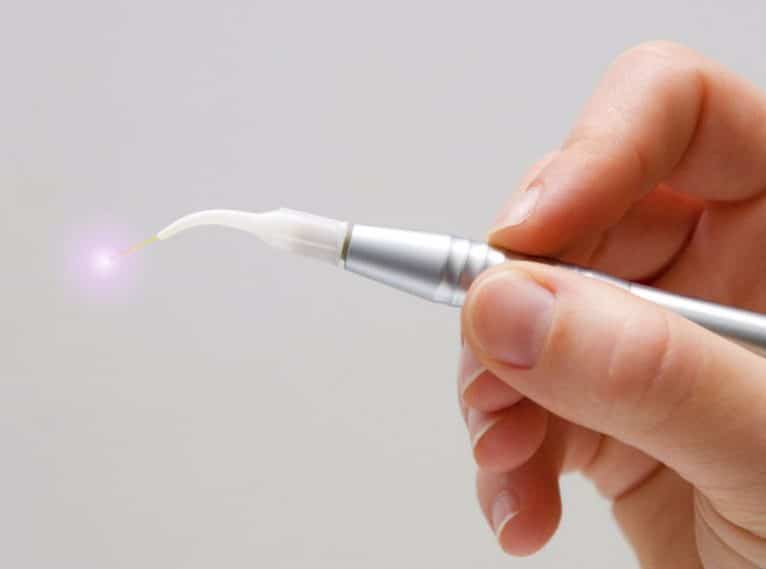What dental treatments are performed with the WaterlaseMD and Waterlase iPlus?
The Food and Drug Administration (FDA) has cleared this laser for:
Hard Tissue Procedures:
Class I, II, II IV, and V cavities,
decay removal,
hard tissue etching,
and preparation of enamel pits and fissures for sealant placement
Soft Tissue Procedures:
Excisional and incisional biopsies,
exposure of unerupted teeth,
fibroma removal,
flap prep incision,
flap prep excision,
frenectomy,
frenotomy,
gingival troughing for crown impressions,
gingivectomy,
gingivoplasty,
gingival incision and excision,
hemostasis,
implant uncovery and recovery,
incisional drainage of abscesses,
laser soft tissue curettage of the extraction site following removal of tooth,
operculectomy,
oral papillectomies,
pulpotomy,
pulp extirpation,
pulpotomy as an adjunct to root canal therapy,
root canal debridement and cleaning,
reduction of gingival hypertrophy,
soft tissue crown lengthening,
sulcular removal of diseased and inflamed soft tissue – debridement,
treatment of canker sores, ulcers, and herpetic lesions of the oral mucousa,
and vistibuloplasty.
Periodontal Procedures:
Full thickness flap,
partial thickness flap,
split thickness flap,
laser removal of infected, diseased, inflamed and necrosed soft tissue within the periodontal pocket,
laser soft tissue curettage,
removal of highly inflamed edematous tissue affected by bacterial invagination of the pocket lining,
removal of granulation tissue,
sulcular debridement,
osteoplasty or osseous re-contouring,
ostectomy,
and osseous crown lengthening.
Are all dental lasers the same?
No, it depends on the application the laser is being used for. Each laser has a procedure it is specially designed for. Sarasota Dentistry uses the WaterlaseMD and Waterlase iPlus lasers -- the first FDA-approved dental laser -- in a variety of our dental procedures.
How much does soft tissue laser dentistry cost?
The short answer is simple - it costs about the same as traditional dental care. Now if you calculate the prevention of large fillings by using the Diagnodent to detect small cavities... then you are saving money. Prevention, faster healing and less pain are the most common benefits of laser dentistry.
Will my dental insurance cover laser dentistry?
A dental laser is an approved instrument that is designed to complete a more specific procedure. Your dental insurance benefits will pay the cost of your treatment based upon the completion of the procedure and the details of your benefit plan. The type of instrumentation used -- in this case, a dental laser -- does not affect whether or not your dental insurance will cover the cost of the procedure.


